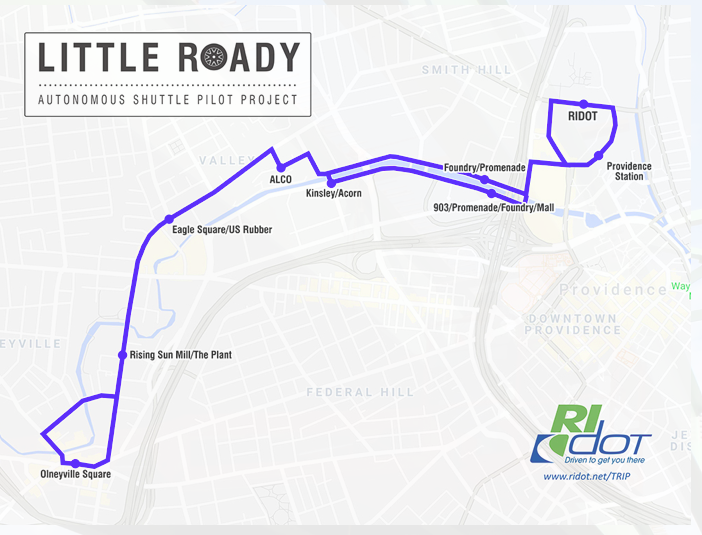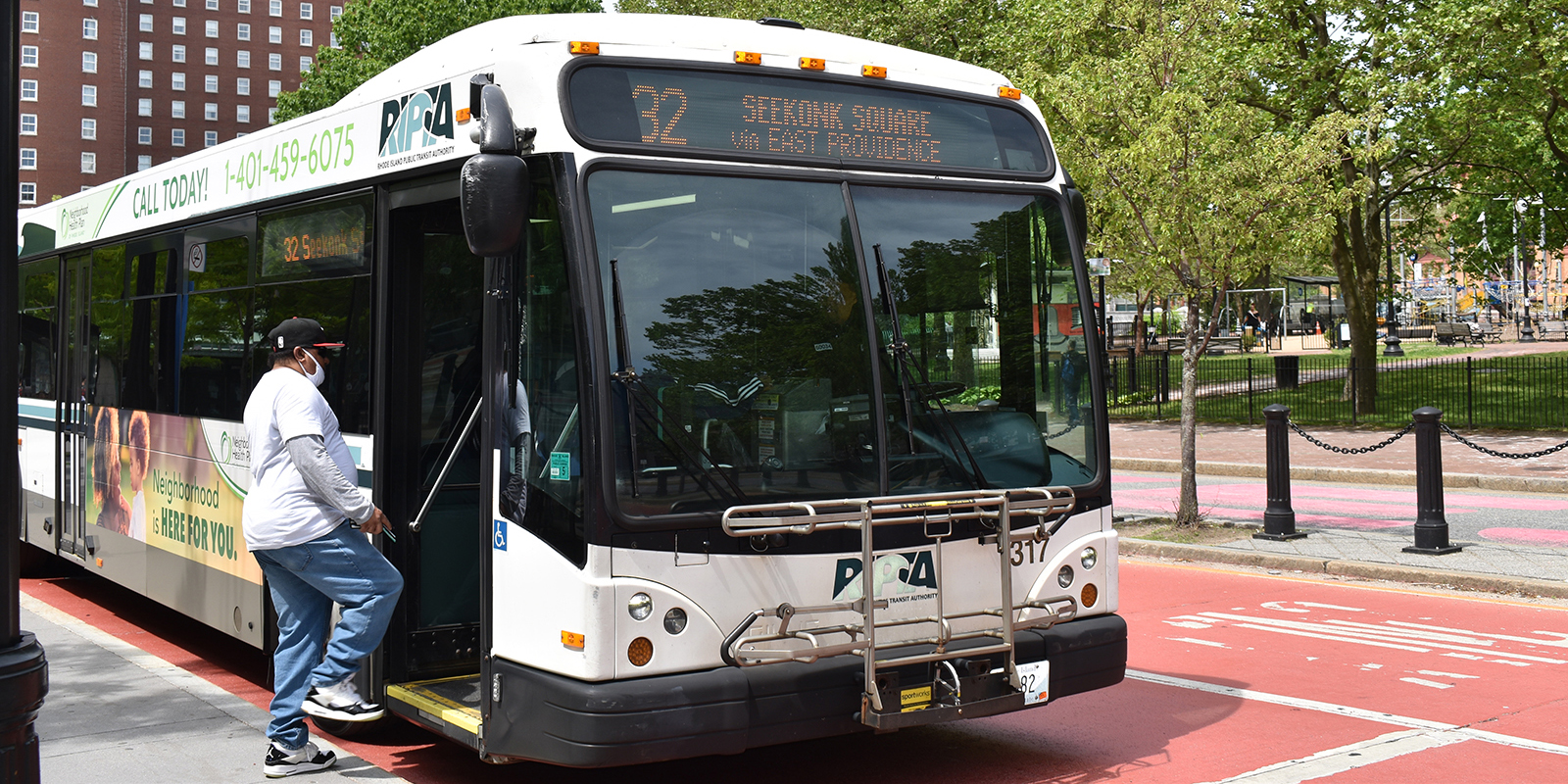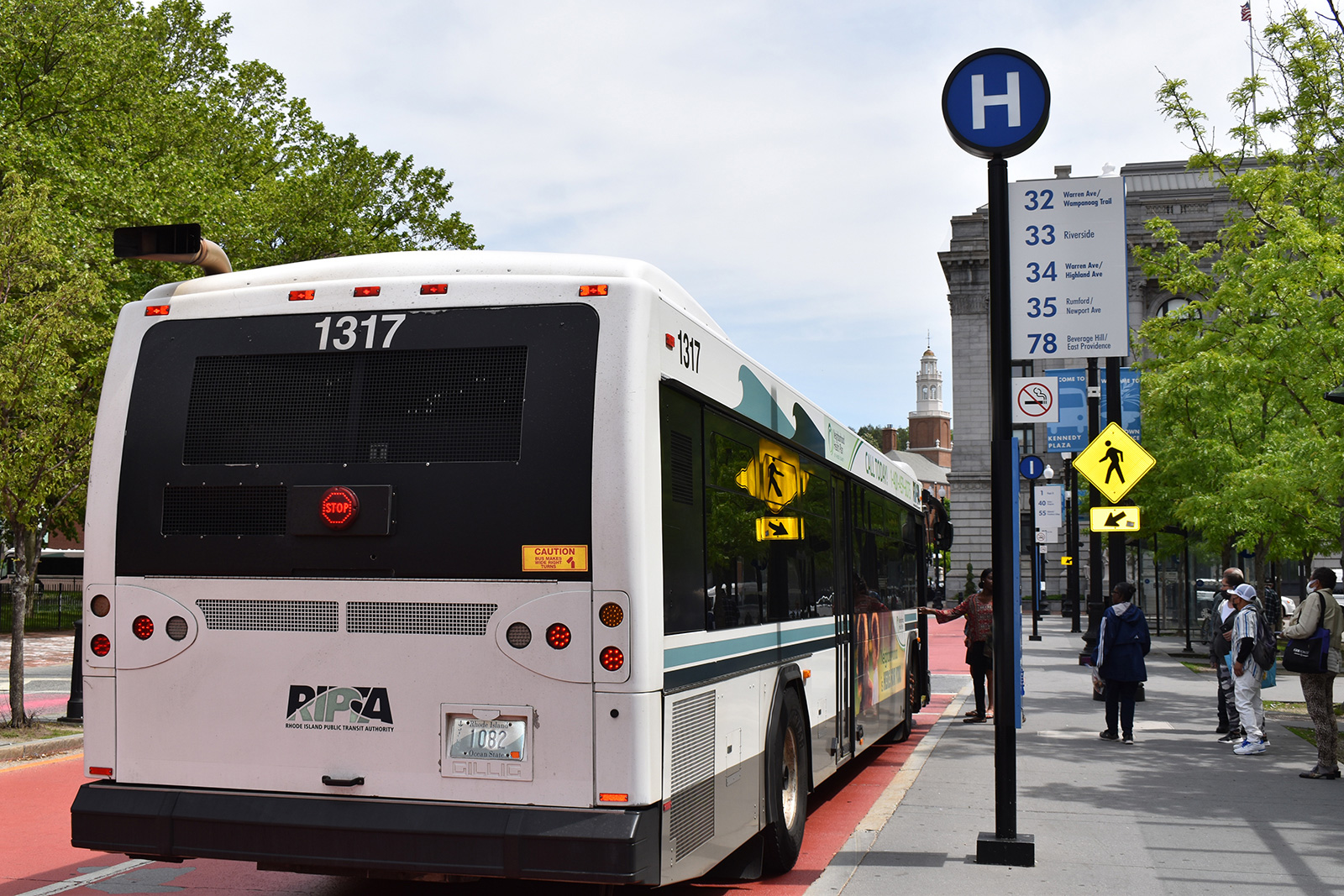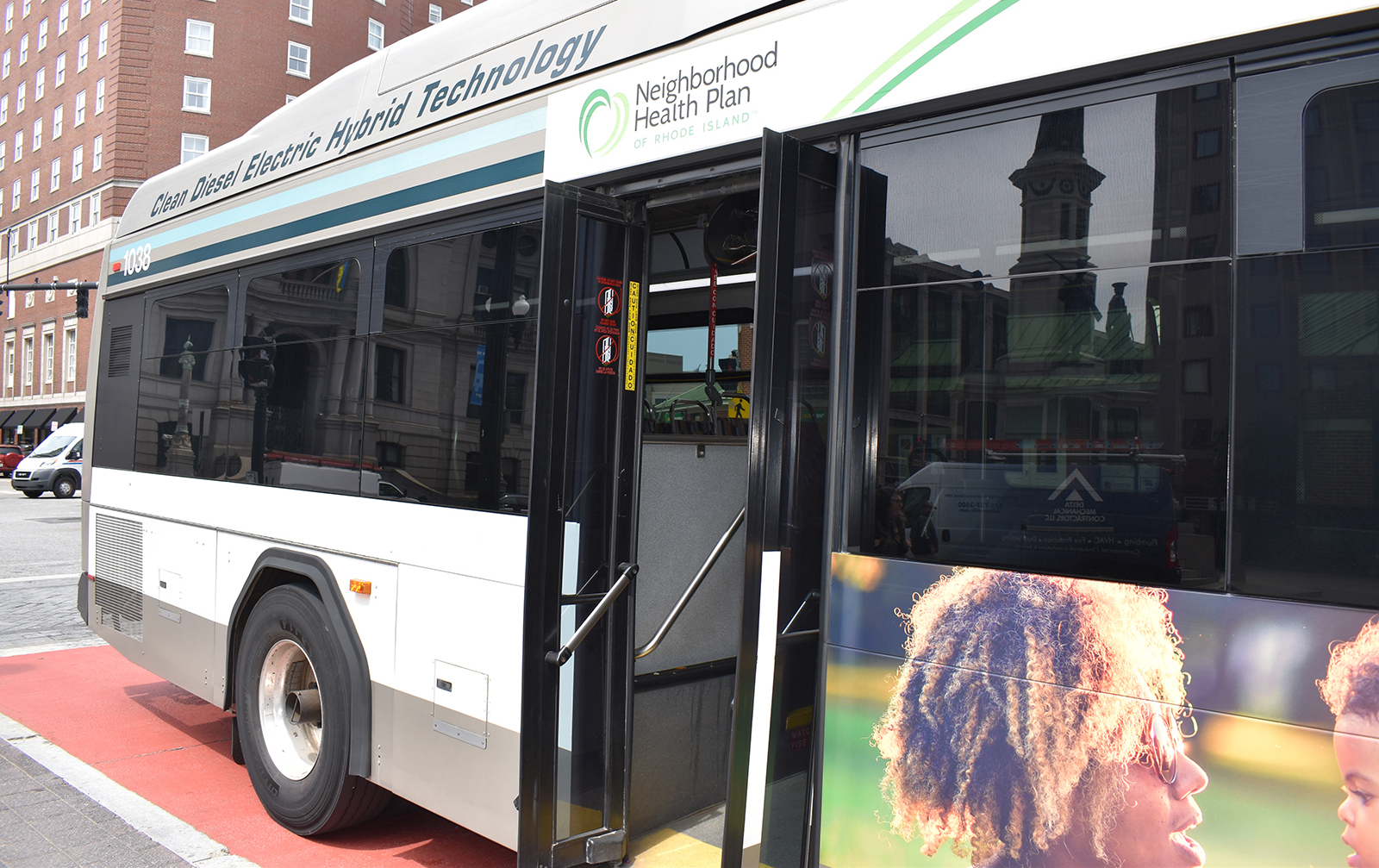Driverless Shuttle Service Nears Providence Launch
April 8, 2019

PROVIDENCE — The forthcoming Little Roady transit service has a cool moniker: micro-transit, low-speed, driverless shuttle. But whether the service has staying power depends on how it navigates city roads during the next 12 months.
The battery-powered vans are already moving along the 5.3-mile route between the train station and Olneyville Square, but they won’t be taking passengers until later this spring or early summer.
The project is an experiment to find out if short-route transportation services and autonomous vehicles (AVs) can meet the vision of urban planners and satisfy the growing trend to get around in ways that don’t require owning a vehicle or having a human driver.
Julia Gold, chief of sustainability for the Rhode Island Department of Transportation, compared the rollout of AVs to the advent of the automobile, and their unforeseen consequences, in the early 1900s.
“AVs are going to present a lot of challenges and they present a lot of questions about how we develop our communities,” Gold said during an April 1 public information event.
Although these AVs lack a traditional steering wheel, they do have a large joystick at the ready for an attendant to take control of the vehicle at any point. If all goes as planned, the attendant, however, may go away, and the service will move up to six passengers between 12 predetermined stops along the 5.3-mile loop.
The 2-year pilot project, managed by May Mobility of Ann Arbor, Mich., began with test runs of the vans at the spacious Quonset Industrial Park in North Kingstown. The free shuttle will face greater tests along more narrow and heavily trafficked city streets.
Unlike the unexpected arrival of electric scooters last year, Gold said there will be a plenty of forethought, public feedback, and data crunching, which will include collaborating with Brown University.
“We have a lot of questions that need answers,” Gold said.
The April 1 audience had many questions as well, mostly about the safety of driverless vehicles. Several wanted to know how the vehicles would avoid pedestrians and potholes, whether they would incite road rage, and how they will know to pull over for a passing firetruck or police car.
Gold explained that the vehicles have a top speed of 25 mph, the maximum posted speed on the route.
“There may be some road rage at first but it also has the potential to increase safety in the neighborhood by encouraging people to drive the speed limit,” she said.
Andrew Dykman, a mobility engineer for May Mobility, explained that the sensors, radar, and cameras affixed to the top and all sides of the vehicles offer greater awareness and faster reactions than a human driver.
The loop along Valley Street and Promenade Street was chosen because it is a fast-growing neighborhood that lacks public bus service. The Rhode Island Public Transit Authority (RIPTA) is a partner in the experiment and for an unspecified time RIPTA bus drivers will join the attendant en route.
Once the service goes live, between three and six shuttles will run seven days a week, from 6:30 a.m. to 6:30 p.m.
Gold said it’s a challenge to know what future technology and advancements await AVs, but that Little Roady creates an opportunity rather than just a vision.
“The end point is that we come away with valuable lessons that inform our next steps,” Gold said.
The vans are manufactured in Anaheim, Calif., by the electric vehicle division of Polaris Industries Inc.
The $800,000 project is being funded with $300,000 from the Federal Highway Administration and $500,000 from the $4.1 million settlement the Rhode Island Attorney General received from the Volkswagen emissions scandal. The Department of Environmental Management is overseeing an additional $14.3 million in funds the state received from Volkswagen.
May Mobility offers similar services in Detroit and Columbus, Ohio.
May Mobility is one of many companies operating in the so-called “last-mile transportation” sector. Modes of travel include walking, bicycles, scooters, pedicabs, streetcars, light rail, and many newfangled electric and driverless vehicles. Founded in 2017, May Mobility has received $33.6 in capital including a recent $22 million investment from hedge funds and private investors.




Who the hell comes up with these ridiculous retarded ideas. Driverless cars will turn out to be a disaster. Just like the so-called medical marijuana is now an epidemic just like e-cigarettes is now an epidemic. And all these ridiculous solar panels destroying our open space. And the only one who benefits is the investor.. the human animal is so freaking pathetic